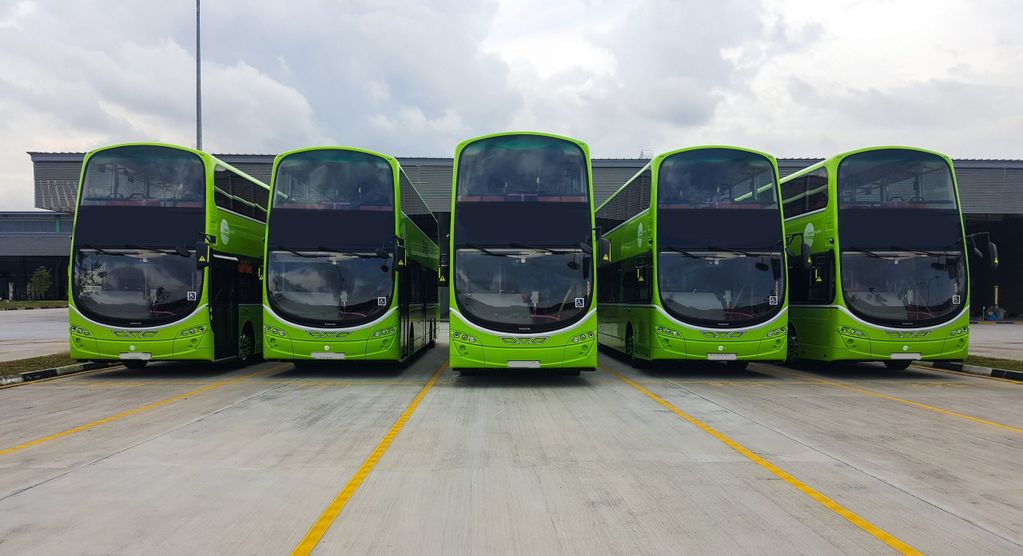
Data sharing in public transport: why, how, when and with whom?
Modern services for modern customers
Public transport services rely increasingly on digital information systems to ensure reliable and efficient operation, as well as accurate passenger information.
From managing vehicle fleets, to issuing tickets and receipts and providing real-time information on services, IT systems are used to make the customer’s door-to-door journey simple and seamless.
The key here is data.
With the growing use of Internet of Things (IoT) and other data-generating devices, our sector has witnessed an explosion of data, opening new doors and opportunities still to be explored.
Sharing is caring… carefully
Data sharing can unlock many new insights about our customers’ behaviours and habits. However, certain types of data might not be suitable for sharing due to privacy, competition law or commercial restrictions and concerns.
The latest UITP study looks deeper into the current state of data sharing in public transport and discusses guidelines and recommendations for organisations that wish to understand the benefits of, and best practices in, data sharing. The study, co-funded by the Land Transport Authority (LTA) and conducted in partnership with Oxera Consulting LLP, concludes with our latest report: Sharing of Data in Public Transport: Value, Governance and Sustainability.
Understanding the value of data and data sharing
Data is not your typical commodity, and it can be difficult to understand its value. The value of data does not increase proportionally with its quantity; use of data by one user does not prevent others from using the same data at the same time. Many standard tools for measuring the value of a commodity are rendered useless when it comes to understanding the true value of data.
In fact, the true value of data depends on the perspective: who’s looking at it and why? In our report, we propose looking at approaches to share data in a sustainable way and align motivations in data sharing in the context of four valuation methods:
- Cost-based
- Income-based
- Market-based
- Externalities-based
With a better understanding of the value of data sharing, organisations can look at establishing the appropriate data sharing business models. An organisation can combine these models depending on the data and stakeholders involved. Our new report reviews three frequently used data sharing models (Open Access, Bilateral and Multilateral Restricted Access) as well as an assessment tool (The Five-Capital Framework of Sustainability) to provide guidance on how to share data sustainably. The report also features 5 detailed case studies from London, Los Angeles, Paris Region, Singapore and Taipei showing the application of the business models and assessment framework.
Data sharing is not a standalone practice
A holistic view of data sharing needs to be based on a wider data strategy that covers data governance, the data sharing culture and risk assessments. The data strategy sets the foundations of how an organisation interacts with data and is crucial when choosing data sharing business models and assessing their sustainability.
In particular, a data strategy should align with a wider corporate purpose and objectives – this ensures that it is always clear why particular data is
Want to know more about why, how, when and with whom to share data?
In tandem to this report release, we will be hosting a webinar (20 November 2020) on Sharing of Data in Public Transport: Value, Governance and Sustainability, which aims to further demystify the latest trends in data sharing and present guiding principles to explore different valuation methods for data sharing, to review frequently used business models for data sharing, and finally, to provide insights on how to make the best of your company’s data sharing strategy.
Read on in our newly released report to learn more about the value of data sharing and how to make the best decisions for your business when it comes to data sharing sustainably.

Data4PT
Also highlighting the importance of data-sharing practices in public transport is the UITP-coordinated DATA4PT project. Launched earlier this year, this EU-initiative aims to support the implementation of data exchange standards (called Transmodel, NeTEx and SIRI) by EU Member States, to further improve seamless multimodal mobility in Europe.
In DATA4PT, a team of high skilled experts is set up to provide technical support and training on data standards to EU Member states, public transport authorities, public transport operators, among others. Requests for support can be filed through the DATA4PT website!
Join us at IT-TRANS!
Take your business to the next level and register now to join us at the next stop on our Digital World Tour: IT-TRANS 2020, the world’s leading conference on digitalisation and smart technology systems in public transport. Connect online from 1-3 December and discover the latest trends in our sector’s digital transformation journey!
exclusive resources







